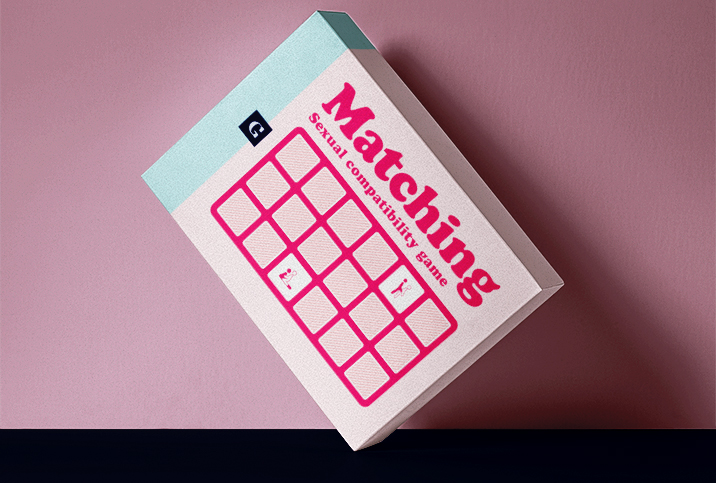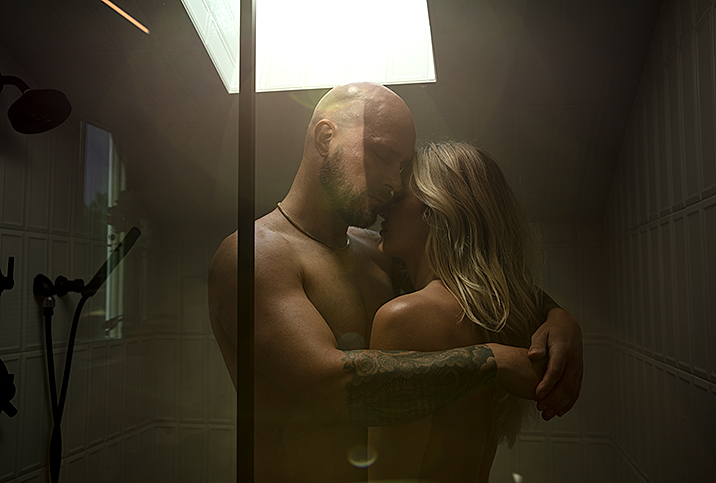How to Navigate an Asexual + Allosexual Marriage

For years, I thought I was broken. I thought my lack of sexual interest was hormonal at best and an inherent flaw at worst. But, as it turns out, I'm not flawed, just simply asexual.
It wasn't until I reached the age of 35 and had been married for 14 years that I first heard the term "asexual." As I learned more about asexuality, it felt like I suddenly made sense. There wasn't anything wrong with me. I wasn't broken. I was asexual.
As relieved as I was, this revelation came with its own set of questions: How do I live my truth as an asexual woman married to a man who physically desires me? What does this mean for our well-established relationship? At this point, we had two children together and I was pregnant with my third. Could this marriage even be sustainable?
The answer is yes—but it's taken a huge learning curve and some heartache to get there.
Asexuality 101
Before we dive into my story, let's talk about asexuality versus allosexuality. An asexual person is someone who experiences little to no sexual attraction and does not have the desire to act upon attraction to others in a sexual way. Allosexuality is, basically, the opposite: Allosexual people experience sexual attraction.
Asexuality has a full spectrum of its own, with many sub-identities, such as graysexual—people who experience sexual attraction very rarely or with low intensity—or demisexual—people who can only experience sexual attraction when they have a strong emotional connection with someone. Some asexuals are sex-repulsed, meaning they find sex undesirable, while others are sex-favorable—they enjoy having sex, but do not feel a strong sense of attraction to others. Some asexuals are aromantic as well, meaning they don't experience romantic attraction, while others seek romantic relationships. (The Asexuality Visibility & Education Network is an excellent resource to learn all the nuances about asexuality.)
Considering how much stock society puts in sex, especially on its role in a "healthy relationship," you can see how a relationship between an asexual person and an allosexual person might be complicated.
A revelation
For years, before I had the proper language to describe my sexuality, my husband and I struggled with our sex life. Neither of us understood my lack of sexual desire, and it led to feelings of resentment, rejection and anger. My husband eventually began taking my lack of interest in sex as a personal rejection and ultimately sought sexual validation elsewhere: He had an affair.
His infidelity blew our marriage apart. We separated, and it wasn't until we had spent time apart that he finally gained some clarity and insight. Through deep soul-searching, and the threat of losing his family and the person he loved (me), he was finally able to accept what had eluded him so much in the past: My lack of sexual desire did not equal a lack of love.
He was able to accept my asexuality as a core part of who I am instead of the result of something wrong with him. Without this fundamental revelation on his part, there was no way our marriage could have survived.
From the ashes
In the aftermath of the affair, I found myself with the cautious desire to reconcile and see if we could build a new relationship from the ashes of our old one.
Once we stopped tiptoeing around our mismatched sexualities and began speaking honestly, we started truly seeing each other and understanding our fundamental differences and needs. Everyone knows that a lack of communication is a relationship-killer, but when navigating a complex dynamic like this one, frequent and honest communication is absolutely vital to ensure boundaries are respected and resentment does not build.
What has been essential for us—for my husband, in particular, as he learns to accept his life married to an asexual person—is acknowledging other, fulfilling aspects of the relationship outside of the physical act of sex. "Knowing you don't want sex has made me shift the way I look at our relationship," he told me. "I look forward to navigating it together as it evolves."
In our old marriage, the expectation of sex always hung over us like a dark cloud. In this new marriage, where I can be openly asexual, there are no sexual expectations. This allows us both to reframe our relationship and focus on the things that do work well—and there are so many.
Let's talk about sex, baby
So, obviously, sex is the big, horny elephant in the room. My husband is attracted to me and actively desires to have sex with me. These are feelings I don't reciprocate. It took a long time (and the decimation of our marriage) for him to accept that my lack of attraction and lack of sexual desire did not translate to a lack of love, appreciation or dedication to him and our marriage. So what do we do about sex?
I consider myself sex-neutral, sometimes sex-favorable. I'm not repulsed by sex. I'm mostly neutral about it, but I occasionally pursue or engage in it because I want to. My desire for sex doesn't come from a place of attraction or even libido, but the desire to connect with my partner in that way. So when it comes to navigating our sex life, the answer is actually pretty simple: If I am not feeling it, we don't have it. While some may find this unfair and unbalanced, we both feel that since I am the one with more specific sexual boundaries, those are the boundaries that must be honored.
Had I learned about asexuality much earlier in life and had my marriage been a safe, open place to talk about such things, my husband and I may have been able to effectively communicate in a way that would have saved us a lot of heartache.
My biggest advice to those navigating an asexual + allosexual relationship is to talk to one another, and talk often. Just because something worked for you in the past doesn't mean it will work forever. If you value, trust and love each other, you can make this unique relationship dynamic work—you just have to be brave enough to open your hearts and be honest.


















